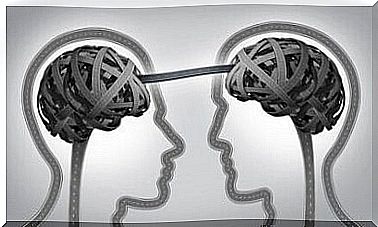The Delayed Happiness Syndrome

The delayed happiness syndrome is a consequence of poor time management. In it, the desired plans are always postponed by various obligations that inevitably arise one after the other.
The negative emotions that come from this perverse custom can affect our performance, our personal and professional relationships. They can even change our personality. Therefore, it is important to know how to separate obligations from pleasures.
Happiness and other emotions
Happiness is one of the so-called positive emotions because, in general, its effects are positive on the organism and relationships. We can say that we feel happiness when we experience full satisfaction, brought about by the fulfillment of a goal or a pleasurable experience.
It may seem that happiness is always a positive emotion. This, however, is not always true. A priori, its effects are positive, but beware, because our minds can deceive us.
Humans experience a core of happiness (or at least pleasure) when they imagine, remember, or yearn for happy moments. However, this illusion of happiness doesn’t last long and consequently can turn into frustration, heartbreak and stress.

Symptoms of Delayed Happiness Syndrome
To find out if you have this syndrome, you can pay attention to the following symptoms:
- You are constantly looking for something better. You are never satisfied with your achievements and always see opportunities for improvement that inevitably cause you to lose interest in your achievements and take them for granted.
- Money becomes obsessive and you save everything you can, with plans to spend it only when you need it, but that time never comes, as nothing is too urgent to spend it.
- Fear of failure is also an obsession, so much so that you prefer to stay in the situation you find yourself in rather than grow personally, family or professionally.
These three symptoms, taken together or individually, are unmistakable causes that you need to make a change. Delaying happiness does nothing but give freedom to negative emotions and prevent you from being truly happy. Often the truth is that, after putting off happiness so much, it never comes.
Consequences of Postponing Happiness
The effects of the delayed happiness syndrome are evident: in the opposite state to happiness, we become apathetic, melancholy, or irritable. In reality, what the person suffering from this syndrome is doing is always putting off that happiness, constantly projecting it into the future, so that such happiness never comes.
As a result, a fear is generated, not only of failure, but also of risk in itself, for fear of putting at risk a lifestyle considered reasonable or stable. The truth is that this image of life is often not real; it is the result of the acceptance that “we must have no more aspiration”.
How to face the delayed happiness syndrome?
If we are immersed in this syndrome, we may not be aware of what the problem is, but we know that something is happening and that it is important to act as soon as possible.

Rearrange your priorities
The solution is to open up what is truly important, which does not always coincide with what is urgent. This means prioritizing or allocating time for what you like. It’s simply a matter of seeing that you too need a space to feel good, not just to suffer or sacrifice. As much as this sacrifice may do you later, it is not healthy.
Consequently, this desire to be happy is likely to lead you to take risks, but these are really necessary for you to move forward. If we systematically avoid risk, we will end up losing quality of life… and all this thanks to self-imposed limitations that leave us with tiny space to move.
Think about what makes you happy already
Nobody is totally unhappy. We all have something in our lives that gives us pleasure, and this is an interesting starting point. Instead of continuing to project happiness into the future, no matter how much with the aim of reorganizing priorities, living in the present will help you in the change we are proposing.
That is, if you already have habits that make you feel good, such as reading or dedicating a few days a year to travel, try to make sure that this is not left out of your obligations. In the end, given the delayed happiness syndrome, the plane of the hypothesis is far less tangible than reality.









